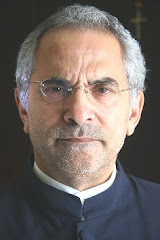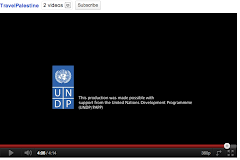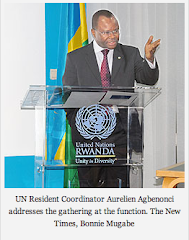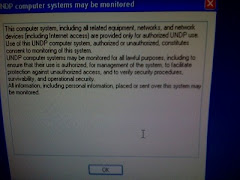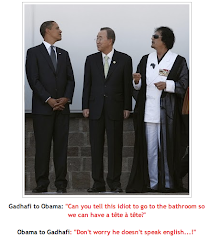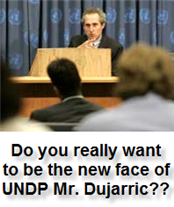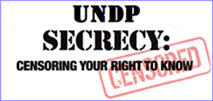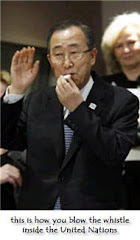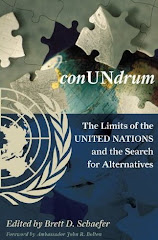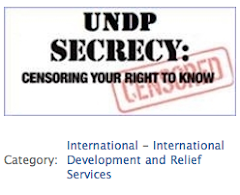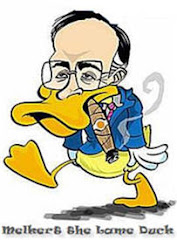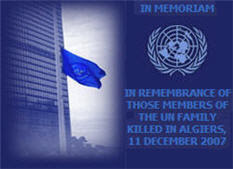Associated Press
North Korea is exporting nuclear and ballistic missile technology and using multiple intermediaries, shell companies and overseas criminal networks to circumvent U.N. sanctions, U.N. experts said in a report obtained by The Associated Press.
North Korea is exporting nuclear and ballistic missile technology and using multiple intermediaries, shell companies and overseas criminal networks to circumvent U.N. sanctions, U.N. experts said in a report obtained by The Associated Press.
The seven-member panel monitoring the implementation of sanctions against North Korea said its research indicates that Pyongyang is involved in banned nuclear and ballistic activities in Iran, Syria and Myanmar. It called for further study of these suspected activities and urged all countries to try to prevent them.
The 47-page report, obtained late Thursday by AP, and a lengthy annex document sanctions violations reported by U.N. member states, including four cases involving arms exports and two seizures of luxury goods by Italy — two yachts and high-end recording and video equipment. The report also details the broad range of techniques that North Korea is using to try to evade sanctions imposed by the U.N. Security Council after its two nuclear tests in 2006 and 2009.
Council diplomats discussed the report by the experts from Britain, Japan, the United States, France, South Korea, Russia and China at a closed-door meeting on Thursday.
Its release happened to coincide with heightened tensions between North Korea and South Korea over the March sinking of a South Korean navy ship which killed 46 sailors. The council is waiting for South Korea to decide what action it wants the U.N.'s most powerful body to take in response to the sinking, which a multinational investigation determined was caused by a North Korean torpedo.
The panel of experts said there is general agreement that the U.N. embargoes on nuclear and ballistic missile related items and technology, on arms exports and imports except light weapons, and on luxury goods, are having an impact.
But it said the list of eight entities and five individuals currently subject to an asset freeze and travel ban seriously understates those known to be engaged in banned activities and called for additional names to be added. It noted that North Korea moved quickly to have other companies take over activities of the eight banned entities.
The experts said an analysis of the four North Korean attempts to illegally export arms revealed that Pyongyang used "a number of masking techniques" to avoid sanctions. They include providing false descriptions and mislabeling of the contents of shipping containers, falsifying the manifest and information about the origin and destination of the goods, "and use of multiple layers of intermediaries, shell companies, and financial institutions," the panel said.
It noted that a chartered jet intercepted in Thailand in December carrying 35 tons of conventional weapons including surface-to-air missiles from North Korea was owned by a company in the United Arab Emirates, registered in Georgia, leased to a shell company registered in New Zealand and then chartered to another shell company registered in Hong Kong — which may have been an attempt to mask its destination.
North Korea is also concealing arms exports by shipping components in kits for assembly overseas, the experts said.
As one example, the panel said it learned after North Korean military equipment was seized at Durban harbor in South Africa that scores of technicians from the North had gone to the Republic of Congo, where the equipment was to have been assembled.
The experts called for "extra vigilance" at the first overseas port handling North Korean cargo and close monitoring of airplanes flying from the North, saying Pyongyang is believed to use air cargo "to handle high valued and sensitive arms exports."
While North Korea maintains a wide network of trade offices which do legitimate business as well as most of the country's illicit trade and covert acquisitions, the panel said Pyongyang "has also established links with overseas criminal networks to carry out these activities, including the transportation and distribution of illicit and smuggled cargoes."
This may also include goods related to weapons of mass destruction and arms, it added.
Under council resolutions, all countries are required to submit reports on what they are doing to implement sanctions but as of April 30 the panel said it had still not heard from 112 of the 192 U.N. member states — including 51 in Africa, 28 in Asia, and 25 in Latin America and the Caribbean.
While no country reported on nuclear or ballistic missile-related imports or exports from North Korea since the second sanctions resolution was adopted last June, the panel said it reviewed several U.S. and French government assessments, reports from the International Atomic Energy Agency, research papers and media reports indicating Pyongyang's continuing involvement in such activities.
These reports indicate North Korea "has continued to provide missiles, components, and technology to certain countries including Iran and Syria ... (and) has provided assistance for a nuclear program in Syria, including the design and construction of a thermal reactor at Dair Alzour," the panel said.
Syria denied the allegations in a letter to the IAEA, but the U.N. nuclear agency is still trying to obtain reports on the site and its activities, the panel said.
The experts said they are also looking into "suspicious activity in Myanmar," including activities of Namchongang Trading, one of the companies subject to U.N. sanctions, and reports that Japan in June 2009 arrested three individuals for attempting to illegally export a magnetometer — which measures magnetic fields — to Myanmar via Malaysia allegedly under the direction of a company known to be associated with illicit procurement for North Korea's nuclear and military programs. The company was not identified.
Friday, May 28, 2010
Wednesday, May 26, 2010
Key recommendations of independent review of the UNDP evaluation policy
Evaluation recommendation 1. UNDP senior management must decide whether decentralized evaluation is of a high enough priority that it is willing to commit the focus and resources needed to implement the approaches envisaged in the new Handbook on Planning, Monitoring and Evaluating for Development Results. Management should do this by:
This recommendation will require changes in systems and practices across the whole planning and project cycle, with ‘evaluation’ being integrated into all new initiatives as they are being developed, as well as into staff appraisal systems.
Evaluation recommendation 2. The senior management of UNDP will need to build on the opportunities to build national leadership and ownership in evaluation. In responding to changes introduced by the UNDG on results reporting and results frameworks used at country level, the senior management of UNDP will need to revise the new Handbook for Planning, Monitoring and Evaluating for Development Results, the UNDP Programme and Operations Policies and Procedures, and other tools and guidelines.
These revisions should also recognize an ongoing need for the Evaluation Office to draw upon this data for the assessment of development results and corporate level evaluations, which are still required to meet corporate level accountability and learning objectives. The Evaluation Office should reassess its methodological guidance in the light of these changes, and work within UNEG to craft a common response on how to balance corporate and national-level needs for evaluative evidence.
Evaluation recommendation 3. The Executive Board should amend the evaluation policy to institutionalize the independence of the Evaluation Office. This would include:
Evaluation recommendation 5. The Evaluation Office should work through UNEG to clarify (a) the comparative advantage of UNDP in building capacity for evaluation at the country level; and (b) what steps should be taken by the Evaluation Office and the respective country programmes to build on this comparative advantage.
Evaluation recommendation 6. The Executive Board should consider requesting a review to be presented to the Board in 2012 covering:
(a) Acknowledging the magnitude of the challenge; (b)Taking a clear lead in ensuring that changes envisaged are implemented as quickly and effectively as possible;
(c)Revising the UNDP Programme and Operations Policies and Procedures (POPP) where necessary, to ensure alignment between the handbook and policies and procedures; and
(d)Defining the means, capacities and timeline required to implement the changes needed to strengthen the decentralized evaluation system, and ensure resources are allocated, implementation is properly monitored and corrective action taken, if needed.
This recommendation will require changes in systems and practices across the whole planning and project cycle, with ‘evaluation’ being integrated into all new initiatives as they are being developed, as well as into staff appraisal systems.
Evaluation recommendation 2. The senior management of UNDP will need to build on the opportunities to build national leadership and ownership in evaluation. In responding to changes introduced by the UNDG on results reporting and results frameworks used at country level, the senior management of UNDP will need to revise the new Handbook for Planning, Monitoring and Evaluating for Development Results, the UNDP Programme and Operations Policies and Procedures, and other tools and guidelines.
These revisions should also recognize an ongoing need for the Evaluation Office to draw upon this data for the assessment of development results and corporate level evaluations, which are still required to meet corporate level accountability and learning objectives. The Evaluation Office should reassess its methodological guidance in the light of these changes, and work within UNEG to craft a common response on how to balance corporate and national-level needs for evaluative evidence.
Evaluation recommendation 3. The Executive Board should amend the evaluation policy to institutionalize the independence of the Evaluation Office. This would include:
(a) Recruitment of the Director of the Evaluation Office. In the current policy, the Administrator appoints the Director of the Evaluation Office, in consultation with the Executive Board, and ensures there is no conflict of interest in employment, including limiting the term of appointment to four years, renewable once, and barring re-entry into the organization. Institutionalization of independence would be significantly strengthened if the role of the Executive Board in appointing the Director were strengthened and clearly spelled out in the policy;Evaluation recommendation 4. The Evaluation Office to consider the degree to which the present approach to development and implementation of assessment of development results truly contributes to country ownership. Particular issues that should be considered are: participation of government partners in deciding the scope and focus of the assessment of development results; and consideration of the recommendations of, and management response to, the evaluation.
(b) Recruitment of the Evaluation Office Staff. As long as standard UNDP human resources practice is followed, the power of the QUARRY 1 to overrule decisions made by the Director should be removed;
(c) Clarifying relationships. The relationship of the Director of the Evaluation Office to other senior managers within UNDP, and on what basis the Director would participate in strategic planning processes within UNDP, should be clarified;
(d) Expanding career opportunities for the Evaluation Office Staff. The possibilities for Evaluation Office staff to be mainstreamed into core positions in the wider organization, with opportunities to rotate and be promoted in line with standard UNDP procedures, should be strengthened; and
(e) Budget. The process for setting the budget of the Evaluation Office is currently described in broad terms within the present policy, whereby the Administrator is responsible for provision of sufficient resources, and the budget is negotiated biannually with the Bureau of Management. The guiding principle should be that the budget is set to adequately fund the work programme agreed upon between the Evaluation Office and the Executive Board. Good practice would be for the budget to be approved by the Executive Board as part of the Evaluation Office workplan approval process.
Evaluation recommendation 5. The Evaluation Office should work through UNEG to clarify (a) the comparative advantage of UNDP in building capacity for evaluation at the country level; and (b) what steps should be taken by the Evaluation Office and the respective country programmes to build on this comparative advantage.
Evaluation recommendation 6. The Executive Board should consider requesting a review to be presented to the Board in 2012 covering:
• The degree to which the roles and responsibilities laid out in the 2007 POPP and 2009 Handbook have been fully and effectively implemented;
• The degree to which adoption of approaches advocated in the Handbook has strengthened (i) RBM and (ii) decentralized evaluation at the country level;
• The degree to which independence of the EO has been institutionalized;• The degree to which the policy has been implemented and made a positive contribution in UNDP’s associated funds and programmes;• Whether an effective approach to strengthening country ownership and capacity building has been identified and is being implemented.
The North Korean regime has a habit of raiding the UN piggybank
Unfortunately, it is a doomed effort. The North Korean regime has a habit of raiding the UN piggybank. For example, it convinced the United Nations Development Program (UNDP) to provide hard currency payments without any safeguards. Those funds ended up lining the dictator Kim Jong-Il’s pocket. At least $20 million was transferred from the UNDP directly to the North Korean regime for so-called development projects. The UNDP enabled North Korea to use UN-affiliated accounts to launder money and to import dual-use technology. As a consequence of this scandal, the UNDP had shut down its North Korea operations, but has since decided to resume them.
The terrible malnutrition that Ban Ki-moon laments is a direct result of the regime’s cruel neglect and mismanagement. It lets its people suffer from severe food shortages and a near-total breakdown in the public health system while it squanders money on nuclear arms and missiles. The UN’s World Health Organization has managed to get some limited rations delivered to less than a third of the neediest people. While the World Health Organization claims it has international staff monitoring distribution of food aid, reports have surfaced that people getting food are giving it back to the government.
As long as this closed regime stays in power, there is little the United Nations can do to really break through and reach the imprisoned population with humanitarian aid, even with the best of intentions. The aid will be squandered by Kim Jong-Il and his henchmen, as it has done before with development assistance. The UN is simply enabling the government to continue to survive.
The back of this regime must be broken by strangling its economy and quarantining entry and exit of ships to and from North Korean ports suspected of carrying nuclear or other military equipment and materials. There is no other way to save its people.
Article Seven of the Rome Statute of the International Criminal Court defines various categories of acts that constitute crimes against humanity including murder, extermination, enslavement, deportation or forcible transfer of population, imprisonment, torture, rape, sexual slavery or enforced prostitution, persecution and enforced disappearance of persons. North Korea is guilty of virtually all of these horrendous crimes against its own people, yet nothing is being done to hold its leaders to account.
Even if the International Criminal Court should take some action against the North Korean regime, it will mean nothing. Kim Jong-Il need only look at what is happening with Sudan’s Omar Hassan al-Bashir as an example. The Court issued a warrant for al-Bashir’s arrest more than a year ago on charges of war crimes and crimes against humanity in Darfur. Not only is al-Bashir still free, but he will be serving yet another term as president. Two top UN officials in Sudan are even planning to attend his inauguration ceremony!
Decisive action against North Korea, beyond what the United Nations is capable of doing, is needed immediately. Will the world’s democracies finally have the courage it takes to put this aggressive dictatorship in its place once and for all? So far, it does not look promising.
The terrible malnutrition that Ban Ki-moon laments is a direct result of the regime’s cruel neglect and mismanagement. It lets its people suffer from severe food shortages and a near-total breakdown in the public health system while it squanders money on nuclear arms and missiles. The UN’s World Health Organization has managed to get some limited rations delivered to less than a third of the neediest people. While the World Health Organization claims it has international staff monitoring distribution of food aid, reports have surfaced that people getting food are giving it back to the government.
As long as this closed regime stays in power, there is little the United Nations can do to really break through and reach the imprisoned population with humanitarian aid, even with the best of intentions. The aid will be squandered by Kim Jong-Il and his henchmen, as it has done before with development assistance. The UN is simply enabling the government to continue to survive.
The back of this regime must be broken by strangling its economy and quarantining entry and exit of ships to and from North Korean ports suspected of carrying nuclear or other military equipment and materials. There is no other way to save its people.
Article Seven of the Rome Statute of the International Criminal Court defines various categories of acts that constitute crimes against humanity including murder, extermination, enslavement, deportation or forcible transfer of population, imprisonment, torture, rape, sexual slavery or enforced prostitution, persecution and enforced disappearance of persons. North Korea is guilty of virtually all of these horrendous crimes against its own people, yet nothing is being done to hold its leaders to account.
Even if the International Criminal Court should take some action against the North Korean regime, it will mean nothing. Kim Jong-Il need only look at what is happening with Sudan’s Omar Hassan al-Bashir as an example. The Court issued a warrant for al-Bashir’s arrest more than a year ago on charges of war crimes and crimes against humanity in Darfur. Not only is al-Bashir still free, but he will be serving yet another term as president. Two top UN officials in Sudan are even planning to attend his inauguration ceremony!
Decisive action against North Korea, beyond what the United Nations is capable of doing, is needed immediately. Will the world’s democracies finally have the courage it takes to put this aggressive dictatorship in its place once and for all? So far, it does not look promising.
Time For Real Action Against North Korea
Tensions are rising in the Korean Peninsula, following confirmation by international investigators that North Korea torpedoed a South Korean ship in March, killing 46 sailors which were South Korea’s worst military fatalities since the Korean War ended in 1953.
South Korean President Lee Myung-bak vowed to cut off nearly all trade with North Korea and to deny North Korean merchant ships permission to use South Korean sea lanes. South Korea also plans to broadcast propaganda messages into the North and to drop leaflets by air.
The United States is planning joint military exercises with South Korea in a show of resolve.
China does not want to do anything that might further inflame the situation, while its friends in North Korea are talking about going to war.
As for the United Nations, Secretary General Ban Ki-moon told reporters at his monthly press conference at UN headquarters in New York that the evidence laid out in the report of the international investigators “is overwhelming and deeply troubling.” Ban Ki-moon expressed his grave concerns, not only on behalf of the United Nations but also personally as a South Korean citizen. “I have a very strong attachment and even a sense of responsibility,” he told reporters. “Now, serving as Secretary-General, this is most troubling for me to see what is happening in the Korean Peninsula - that’s my motherland.”
The Secretary General said that the Security Council will be conferring on what “appropriate” measures to take against the rogue regime. What that means is anyone’s guess, since China will most likely use its veto power to make sure that North Korea gets no more than another slap on the wrist following the ineffective sanctions imposed after North Korea’s missile and nuclear arms testing.
China’s solicitude for North Korea should not be surprising, considering that China has been North Korea’s largest trading partner and supplier of assistance (through subsidized trade and direct transfers). Moreover, as pointed out by the Congressional Research Service, “Beijing values North Korea as a buffer between the democratic South Korea and the U.S. forces stationed there, as a rationale to divert U.S. and Japanese resources in the Asia Pacific toward dealing with Pyongyang and less focused on the growing military might of China.”
For its part, the United Nations itself is still throwing North Korea a lifeline, so to speak. Irrespective of its government’s aggressive actions, humanitarian aid to North Korea will continue, promised Ban Ki-moon. He emphasized the needs of the malnourished children, calling them “the leaders of our future generations.”
After his formal news conference was over, I approached the Secretary General and asked him what level of confidence he had that the humanitarian aid would actually reach the people in North Korea who needed it. I reminded him how previous aid projects to help the people sponsored by the United Nations Development Programme had failed.
All that Ban Ki-moon could say in response was that “We have to try.”
The North Korean regime has a habit of raiding the UN piggybank
Unfortunately, it is a doomed effort. The North Korean regime has a habit of raiding the UN piggybank. For example, it convinced the United Nations Development Program (UNDP) to provide hard currency payments without any safeguards. Those funds ended up lining the dictator Kim Jong-Il’s pocket. At least $20 million was transferred from the UNDP directly to the North Korean regime for so-called development projects. The UNDP enabled North Korea to use UN-affiliated accounts to launder money and to import dual-use technology. As a consequence of this scandal, the UNDP had shut down its North Korea operations, but has since decided to resume them.
The terrible malnutrition that Ban Ki-moon laments is a direct result of the regime’s cruel neglect and mismanagement. It lets its people suffer from severe food shortages and a near-total breakdown in the public health system while it squanders money on nuclear arms and missiles. The UN’s World Health Organization has managed to get some limited rations delivered to less than a third of the neediest people. While the World Health Organization claims it has international staff monitoring distribution of food aid, reports have surfaced that people getting food are giving it back to the government.
As long as this closed regime stays in power, there is little the United Nations can do to really break through and reach the imprisoned population with humanitarian aid, even with the best of intentions. The aid will be squandered by Kim Jong-Il and his henchmen, as it has done before with development assistance. The UN is simply enabling the government to continue to survive.
The back of this regime must be broken by strangling its economy and quarantining entry and exit of ships to and from North Korean ports suspected of carrying nuclear or other military equipment and materials. There is no other way to save its people.
Article Seven of the Rome Statute of the International Criminal Court defines various categories of acts that constitute crimes against humanity including murder, extermination, enslavement, deportation or forcible transfer of population, imprisonment, torture, rape, sexual slavery or enforced prostitution, persecution and enforced disappearance of persons. North Korea is guilty of virtually all of these horrendous crimes against its own people, yet nothing is being done to hold its leaders to account.
Even if the International Criminal Court should take some action against the North Korean regime, it will mean nothing. Kim Jong-Il need only look at what is happening with Sudan’s Omar Hassan al-Bashir as an example. The Court issued a warrant for al-Bashir’s arrest more than a year ago on charges of war crimes and crimes against humanity in Darfur. Not only is al-Bashir still free, but he will be serving yet another term as president. Two top UN officials in Sudan are even planning to attend his inauguration ceremony!
Decisive action against North Korea, beyond what the United Nations is capable of doing, is needed immediately. Will the world’s democracies finally have the courage it takes to put this aggressive dictatorship in its place once and for all? So far, it does not look promising.
South Korean President Lee Myung-bak vowed to cut off nearly all trade with North Korea and to deny North Korean merchant ships permission to use South Korean sea lanes. South Korea also plans to broadcast propaganda messages into the North and to drop leaflets by air.
The United States is planning joint military exercises with South Korea in a show of resolve.
China does not want to do anything that might further inflame the situation, while its friends in North Korea are talking about going to war.
As for the United Nations, Secretary General Ban Ki-moon told reporters at his monthly press conference at UN headquarters in New York that the evidence laid out in the report of the international investigators “is overwhelming and deeply troubling.” Ban Ki-moon expressed his grave concerns, not only on behalf of the United Nations but also personally as a South Korean citizen. “I have a very strong attachment and even a sense of responsibility,” he told reporters. “Now, serving as Secretary-General, this is most troubling for me to see what is happening in the Korean Peninsula - that’s my motherland.”
The Secretary General said that the Security Council will be conferring on what “appropriate” measures to take against the rogue regime. What that means is anyone’s guess, since China will most likely use its veto power to make sure that North Korea gets no more than another slap on the wrist following the ineffective sanctions imposed after North Korea’s missile and nuclear arms testing.
China’s solicitude for North Korea should not be surprising, considering that China has been North Korea’s largest trading partner and supplier of assistance (through subsidized trade and direct transfers). Moreover, as pointed out by the Congressional Research Service, “Beijing values North Korea as a buffer between the democratic South Korea and the U.S. forces stationed there, as a rationale to divert U.S. and Japanese resources in the Asia Pacific toward dealing with Pyongyang and less focused on the growing military might of China.”
For its part, the United Nations itself is still throwing North Korea a lifeline, so to speak. Irrespective of its government’s aggressive actions, humanitarian aid to North Korea will continue, promised Ban Ki-moon. He emphasized the needs of the malnourished children, calling them “the leaders of our future generations.”
After his formal news conference was over, I approached the Secretary General and asked him what level of confidence he had that the humanitarian aid would actually reach the people in North Korea who needed it. I reminded him how previous aid projects to help the people sponsored by the United Nations Development Programme had failed.
All that Ban Ki-moon could say in response was that “We have to try.”
The North Korean regime has a habit of raiding the UN piggybank
Unfortunately, it is a doomed effort. The North Korean regime has a habit of raiding the UN piggybank. For example, it convinced the United Nations Development Program (UNDP) to provide hard currency payments without any safeguards. Those funds ended up lining the dictator Kim Jong-Il’s pocket. At least $20 million was transferred from the UNDP directly to the North Korean regime for so-called development projects. The UNDP enabled North Korea to use UN-affiliated accounts to launder money and to import dual-use technology. As a consequence of this scandal, the UNDP had shut down its North Korea operations, but has since decided to resume them.
The terrible malnutrition that Ban Ki-moon laments is a direct result of the regime’s cruel neglect and mismanagement. It lets its people suffer from severe food shortages and a near-total breakdown in the public health system while it squanders money on nuclear arms and missiles. The UN’s World Health Organization has managed to get some limited rations delivered to less than a third of the neediest people. While the World Health Organization claims it has international staff monitoring distribution of food aid, reports have surfaced that people getting food are giving it back to the government.
As long as this closed regime stays in power, there is little the United Nations can do to really break through and reach the imprisoned population with humanitarian aid, even with the best of intentions. The aid will be squandered by Kim Jong-Il and his henchmen, as it has done before with development assistance. The UN is simply enabling the government to continue to survive.
The back of this regime must be broken by strangling its economy and quarantining entry and exit of ships to and from North Korean ports suspected of carrying nuclear or other military equipment and materials. There is no other way to save its people.
Article Seven of the Rome Statute of the International Criminal Court defines various categories of acts that constitute crimes against humanity including murder, extermination, enslavement, deportation or forcible transfer of population, imprisonment, torture, rape, sexual slavery or enforced prostitution, persecution and enforced disappearance of persons. North Korea is guilty of virtually all of these horrendous crimes against its own people, yet nothing is being done to hold its leaders to account.
Even if the International Criminal Court should take some action against the North Korean regime, it will mean nothing. Kim Jong-Il need only look at what is happening with Sudan’s Omar Hassan al-Bashir as an example. The Court issued a warrant for al-Bashir’s arrest more than a year ago on charges of war crimes and crimes against humanity in Darfur. Not only is al-Bashir still free, but he will be serving yet another term as president. Two top UN officials in Sudan are even planning to attend his inauguration ceremony!
Decisive action against North Korea, beyond what the United Nations is capable of doing, is needed immediately. Will the world’s democracies finally have the courage it takes to put this aggressive dictatorship in its place once and for all? So far, it does not look promising.
Subscribe to:
Posts (Atom)




